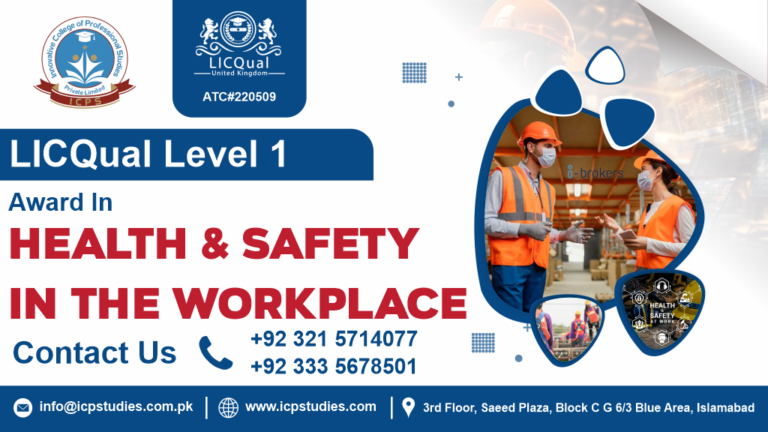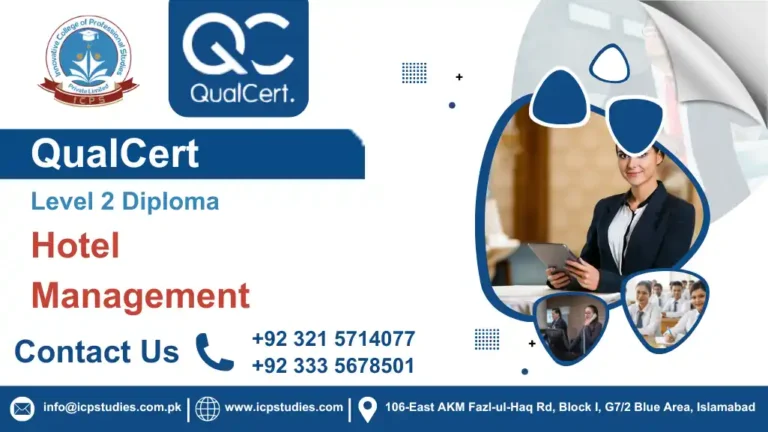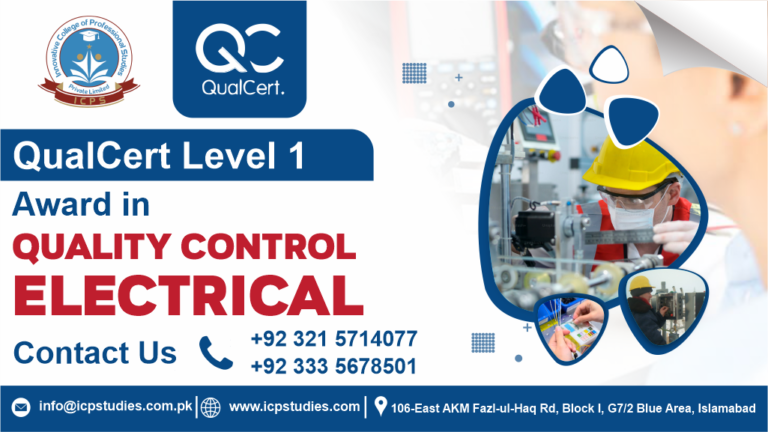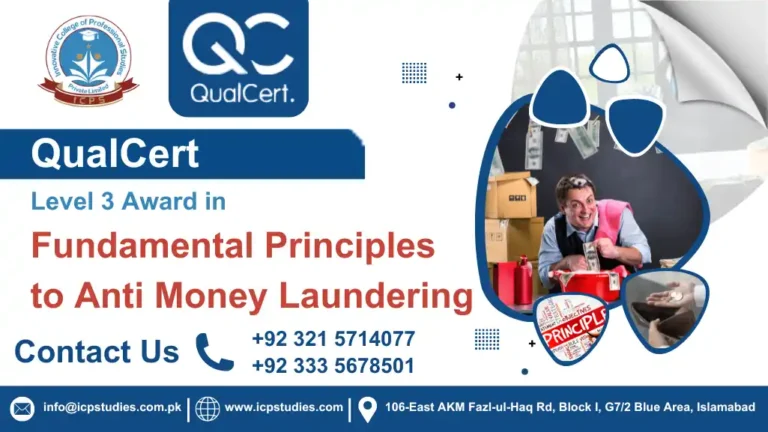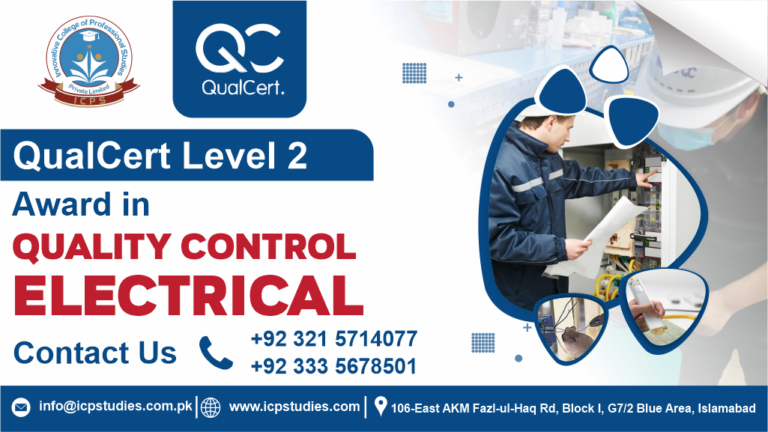In the manufacturing and engineering sectors, quality control (QC) is paramount to ensuring that products meet the highest standards of safety, functionality, and reliability. The Level 1 Award in Quality Control (QC) Mechanical offers a UK-based certification that provides individuals with the foundational knowledge and skills needed to understand and apply quality control principles in mechanical industries. This assignment-based qualification is globally recognized and allows learners to gain hands-on experience in quality control procedures, preparing them for success in various technical roles.
The Level 1 Award in Quality Control (QC) Mechanical is an entry-level qualification designed for individuals who want to begin their career in quality control within the mechanical engineering and manufacturing industries. This UK-based certification focuses on the essential principles and techniques involved in ensuring that mechanical products and components meet defined quality standards.
The Level 1 Award in Quality Control (QC) Mechanical is a valuable qualification for anyone looking to break into the field of quality control in mechanical and engineering industries. With its assignment-based learning approach, UK-recognized certification, and practical focus on essential quality control skills, this course provides everything you need to start a successful career in quality assurance and inspection.
All About QualCert Level 1 Award in Quality Control ( QC ) Mechanical
Course Overview
The OTHM Level 7 Diploma in Environmental and Sustainability Management is a prestigious qualification aimed at individuals who aspire to work in high-level managerial roles within the environmental and sustainability sectors. This UK-based, Ofqual-regulated certification offers in-depth knowledge and practical skills necessary for tackling the complex challenges that modern organizations face regarding environmental protection, sustainability, and corporate responsibility.
Designed for professionals who want to advance their careers, the Level 7 Diploma emphasizes strategic and sustainable decision-making in environmental management. It provides the expertise required to develop, implement, and manage sustainable business practices while complying with relevant environmental laws and regulations.
This assignment-based program ensures that you gain valuable, practical experience without the need for exams, offering flexibility and the opportunity to learn at your own pace. As a globally accepted qualification, it opens doors to leadership roles in the field of environmental and sustainability management across industries.
Study Units
- Fundamentals of Quality Management
- Quality Control in Earthworks
- Project Documentation Standards
- Sampling Techniques in QC
- Quality Incident Reporting
- Introduction to Sustainability in QC
The OTHM Level 7 Diploma in Environmental and Sustainability Management is designed for professionals with significant experience or education in business management, environmental sciences, or a related field. To ensure that you are well-prepared for the advanced level of study required, here are the typical entry requirements for this qualification:
1. Academic Qualifications
- A recognized undergraduate degree (Bachelor’s degree or equivalent) in a relevant subject, such as Environmental Science, Business Management, Sustainability, or Engineering, is generally required.
- Alternatively, a Level 6 qualification in Environmental Management, Sustainability, or a related field is also accepted.
2. Professional Experience
- Applicants with significant work experience in environmental management, sustainability roles, or related fields may be considered for entry, even without formal academic qualifications. Typically, a minimum of 2 years of relevant professional experience in a managerial or supervisory role is expected.
- This experience should demonstrate your involvement in strategic decision-making, sustainability initiatives, and environmental management in a business context.
3. English Language Proficiency
- As the course is taught in English, you should be proficient in the English language. If English is not your first language, you may need to provide evidence of English language proficiency (e.g., IELTS score of 6.5 or equivalent).
- This ensures that all learners can understand and engage with course materials, assignments, and assessments effectively.
4. Other Qualifications
- Other relevant qualifications or certifications, such as Level 6 Diplomas, Postgraduate Certificates, or similar qualifications in environmental management, corporate social responsibility (CSR), or sustainability, may also be considered.
5. Motivation and Commitment
- Applicants should demonstrate strong motivation and commitment to pursuing a career in environmental sustainability and management. This may be assessed through a personal statement or interview as part of the admissions process, where you can outline your career goals, aspirations, and how the qualification aligns with your professional development.
6. Interview or Application Review
- In some cases, you may be required to attend an interview or have your application reviewed by the course provider to assess your suitability for the program, particularly if you do not meet all the formal academic qualifications but have extensive work experience.
If you meet the above entry requirements and are passionate about advancing your career in environmental management and sustainability, the OTHM Level 7 Diploma in Environmental and Sustainability Management could be the perfect fit for you.
Please consult with the specific course provider for any additional or updated entry requirements as they may vary slightly depending on the institution offering the qualification.
The OTHM Level 7 Diploma in Environmental and Sustainability Management is designed for professionals who are looking to advance their careers and leadership capabilities in the fields of environmental management, sustainability, and corporate social responsibility (CSR). This qualification is particularly beneficial for individuals in, or aspiring to, senior management and executive roles within organizations seeking to integrate sustainability into their operations.
Here’s a breakdown of who would benefit most from this course:
1. Mid-Senior Level Managers
- Environmental Managers, Sustainability Managers, or CSR Managers who wish to enhance their leadership skills and develop strategic environmental management expertise.
- Individuals currently working in sustainability-related roles, such as sustainability officers or environmental compliance managers, looking to take on a more senior role and influence organizational strategy.
2. Senior Executives and Directors
- CEOs, COOs, and other senior executives in both the public and private sectors who are tasked with leading sustainability initiatives and integrating environmental practices into business strategies.
- Directors of sustainability, environment, or CSR departments who need advanced knowledge to shape the future of their organization’s environmental policies and sustainability goals.
3. Environmental Consultants
- Environmental consultants looking to expand their knowledge of strategic management and gain the skills to advise organizations on implementing more effective sustainability strategies.
- Professionals working in sustainability consulting who want to provide high-level expertise to businesses seeking to reduce their environmental footprint.
4. Business Owners and Entrepreneurs
- Business owners and entrepreneurs in any industry who are looking to incorporate sustainable practices into their business operations from the outset or those who wish to pivot their existing businesses toward more environmentally-conscious and sustainable business models.
- Small to medium-sized enterprise (SME) owners who wish to position their business as a leader in sustainability within their sector.
5. Environmental and Sustainability Professionals
- Individuals working in environmental science, engineering, construction, energy, or manufacturing sectors who want to advance their expertise in environmental management and sustainability practices at a strategic level.
- Environmental policy advisors, energy managers, and regulatory affairs professionals seeking to deepen their understanding of sustainable development strategies.
6. Academics and Researchers
- Academics or researchers interested in environmental and sustainability topics who wish to pursue higher-level qualifications in environmental management, or explore new research areas within sustainable development.
- Professionals who aim to bridge the gap between theoretical research and practical application of environmental sustainability in business practices.
7. Government and NGO Professionals
- Government officials or public sector workers involved in policy development and environmental management programs who want to develop practical leadership skills for shaping environmental and sustainability policies.
- Employees in non-governmental organizations (NGOs), international development, or charitable organizations focused on climate change, sustainability, and environmental issues.
8. Anyone Passionate About Sustainability
- Individuals who have a strong passion for sustainability and are driven by a desire to contribute positively to the planet’s future and make a difference in their industries or communities.
- Young professionals looking to transition into environmental management and sustainability, or those interested in upskilling for the evolving job market focused on sustainable practices.
The OTHM Level 7 Diploma in Environmental and Sustainability Management is a comprehensive qualification tailored for those who are ready to take on leadership roles in managing and integrating sustainable practices within organizations. It provides a strategic, high-level approach to solving environmental issues while aligning with corporate goals, making it ideal for professionals eager to lead sustainability initiatives in their fields.
If you are passionate about leading environmental change, improving sustainability practices, and taking on leadership positions in the green economy, this qualification is the perfect next step in your career development.
Learning Outcomes
Upon successful completion of the Level 1 Diploma in Quality Control (QC) course, participants will acquire a comprehensive understanding of essential quality control principles, techniques, and standards. This course will equip them with the knowledge and skills necessary to ensure quality standards are maintained across various processes and industries. The key learning outcomes include:
1. Fundamentals of Quality Management
- Understand the core principles and concepts of quality management, and recognize their critical role in the success of an organization.
- Define the roles and responsibilities of quality control professionals in maintaining consistent product and service standards.
- Identify the relationship between quality management systems (QMS) and continuous improvement processes.
- Apply basic quality tools and techniques to effectively monitor and improve operational processes.
- Recognize the importance of customer satisfaction and the need to adhere to established standards for quality compliance.
2. Quality Control in Earthworks
- Gain foundational knowledge of quality control practices specific to earthworks within the construction industry.
- Understand key factors influencing the quality of earthworks, including aspects such as soil compaction, grading, and material consistency.
- Conduct basic inspections and testing procedures for earthworks to ensure compliance with project specifications and regulatory standards.
- Identify common defects in earthwork processes and propose corrective actions to ensure quality is maintained.
- Ensure proper documentation of all earthwork quality control activities and provide accurate reports for ongoing projects.
3. Project Documentation Standards
- Understand the significance of documentation in maintaining quality control throughout a project.
- Adhere to project-specific documentation standards and follow proper formats for quality control records.
- Prepare and manage essential quality control documents such as inspection reports, checklists, and compliance records.
- Ensure that all documentation is complete, accurate, and audit-ready at each stage of a project.
- Utilize effective techniques for the storage, retrieval, and sharing of quality-related documents within the organization.
4. Sampling Techniques in QC
- Understand the importance and purpose of sampling in the quality control process.
- Learn different sampling methods and determine the best technique for specific scenarios to obtain reliable and representative results.
- Perform sampling activities according to industry standards, ensuring accuracy and consistency in the results.
- Analyze and interpret sampling data to assess the quality of materials or products.
- Accurately document sampling procedures and results, ensuring compliance with quality standards and regulations.
5. Quality Incident Reporting
- Understand the importance of incident reporting to maintain high-quality standards.
- Identify common types of quality incidents and assess their potential impact on projects, products, and services.
- Prepare detailed incident reports, including root cause analysis and actionable recommendations for corrective measures.
- Communicate quality incidents clearly to relevant stakeholders and implement necessary corrective actions to prevent recurrence.
- Recognize how incident reporting contributes to continuous improvement in quality control systems.
6. Introduction to Sustainability in QC
- Understand the concept of sustainability and how it relates to quality control practices.
- Identify sustainable practices within quality control processes, including waste reduction, energy conservation, and resource optimization.
- Evaluate the environmental impact of quality control decisions and practices, ensuring compliance with sustainable development goals.
- Promote sustainability initiatives while maintaining the high quality of products and services.
- Understand the reputation benefits that sustainability brings to organizations, including enhanced brand image and compliance with environmental regulations.
By completing this course, participants will have gained the practical knowledge and foundational skills to excel in quality control across various industries, including construction, manufacturing, and service sectors. The skills acquired will provide a strong base for advancing within quality control and other related disciplines.
FAQs Level 1 Award in Quality Control ( QC ) Mechanical


